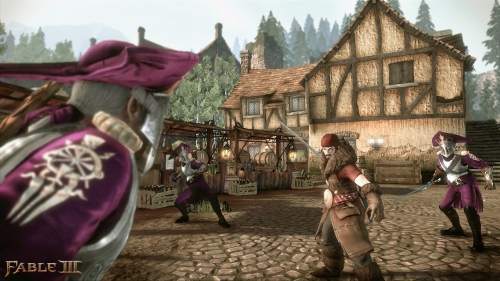Lyric Semiconductor’s sophisticated error correction component is helping to optimize flash memory. But could the company use its advanced probability processing to revolutionize the gaming industry?
Well, Lyric CEO Benjamin Vigoda told TG Daily that his company is currently developing a technology dubbed “GP5” – which he defined as a “general-purpose” programmable probability processing platform.
“GP5 will be ideally suited to calculating probabilities for all types of applications – from web searches to genome sequencing – and could enable performance gains of 1,000X over today’s digital x86-based systems such as the processors from Intel and AMD.

“Now, I can think of at least two examples of how Lyric’s probability processing could be a ‘game changer’ for games – no pun intended. A first application that comes to mind is new gaming interfaces. Probabilities are less rigid than 0s and 1s, so a computer based on 0s and 1s can be less brittle and more responsive to real world conditions.
“For example, Microsoft’s Kinect uses special hardware and software to track your body and your hands, but some gamers have stated that they find it still has some noticeable latency and lack of sensitivity.”
According to Vigoda, Lyric’s GP5 will be capable of using probability based machine vision algorithms to guess the positions of a player’s hands, arms and legs.
“It does this in a very similar way to how humans see and track one another’s body movements. It would consider multiple hypotheses for the angles of your joints. Examining these different alternative body positions, it would try to find the one that is the best match to the images it is receiving from its cameras.
“So Lyric’s GP5 could enable the computer to track users more quickly and to interact with the user with greater subtlety – perhaps reacting to the player’s minute facial expressions, the movement of every twitch of a finger, tracking multiple players at once and boiling these capabilities down to something that could run on batteries rather than requiring a game station.”
Vigoda added that Lyric’s GP5 technology would also allow designers to code “life-like” virtual characters in future video games.

“Just as new physics engines that can track thousands or millions of flying shrapnel objects in a virtual explosion have become important in gaming, the next step in the evolution may be ‘character engines.’
“For example, computing millions or billions of probabilities per second, a character engine running on the GP5 would be able to control the limbs of a character in life-like ways as they traverse rugged terrain, help the character plan its path through the gaming world, trade-off the relative importance of its goals and even enable it to adapt to the gamer’s actions in surprising ways.
“Indeed, if chess playing computers can strategize against human players in the constrained space of a chess board, could tomorrow’s probability processor strategize against human players in the much more open-ended and diverse worlds of video games?
“So, putting these two technologies together with some virtual reality equipment and you could imagine being inside of a martial arts contest against a virtual character who can track your movements, anticipate your moves, block your kicks and give you a real run for your money without giving you a black eye.”






